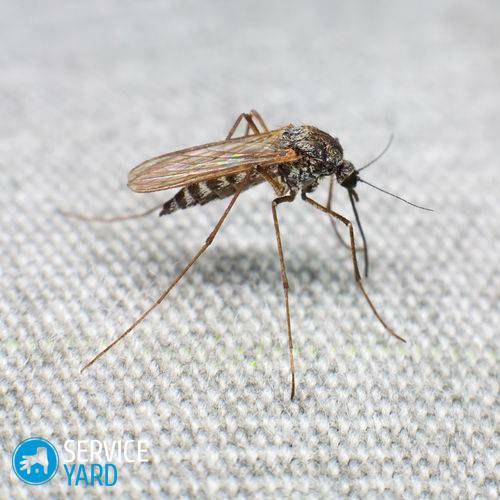Products made of various plastics are widespread today, which is not surprising. This material is lightweight, strong and durable. However, over time, it can lose its original luster. And the colors can get bored. For example, plastic windows can only be white. But someone wants to change their color. Today we'll talk about how and, most importantly, how you can paint plastic and whether it is difficult to do it yourself at home. You should also figure out which plastic can be painted, and which one does not lend itself to this procedure.
Read in the article
- 1 Various types of plastic and the possibility of their coloring
- 2 How to paint: types of compounds for plastic
- 2.1 Waterproof acrylic enamel and its features
- 2.2 Polyurethane-acrylic dyes for PVC and their applications
- 2.3 Features of matte soft-touch paint
- 2.4 Aerosol universal compounds and paints for plastic
- 3 How to paint plastic parts: step by step instructions
- 3.1 Algorithm of actions when applying paint to plastic
- 4 How does working with a brush differ from painting with a spray can
- 5 Safety precautions and personal protective equipment
- 6 How to properly dry painted surfaces
- 7 Finally
Various types of plastic and the possibility of their coloring
Most types of plastics are paintable, but there are exceptions. We are talking about polystyrene, polycarbonate and polyethylene. These types of plastic cannot be painted. However, other plastics also require a certain approach.
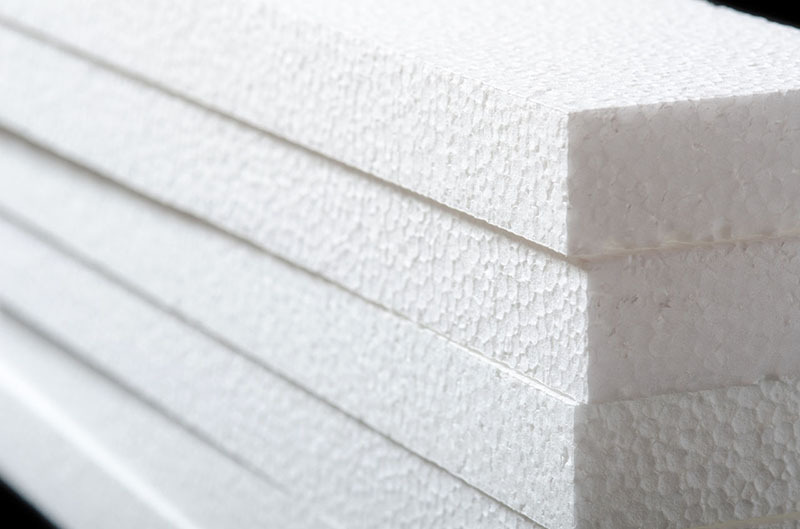
If we talk about soft plastic elements, then elastic enamels must be used to paint them. The tougher ones will simply burst. But universal acrylic enamels can be used already for hard plastic. But that's not all. Painting plastics requires certain preparatory work. It is about degreasing and priming. It should be remembered that not every primer will work. In the course of today's article, we will try to figure out which formulations need to be used in a particular case, and which ones are better not to use.
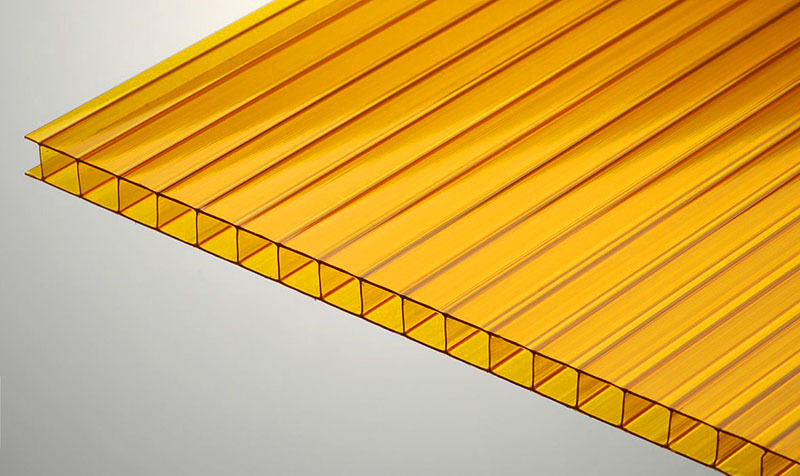
How to paint: types of compounds for plastic
Ideally, a special paint should be used for plastic surfaces. In this case, it is better if it is aerosol, in a can. Such paintwork materials (paints and varnishes) do not require specific skills or experience in such work. If it is more convenient for a home craftsman to work in the old fashioned way, with a brush, then the use of acrylic compositions will be optimal. Let's try to list all the possible paintwork materials that can be used to paint plastic. Acceptable use:
- waterproof acrylic enamel;
- polyurethane paint;
- structural composition;
- matte soft-touch paint;
- aerosol paintwork materials.
It makes sense to dwell a little on each of the varieties.
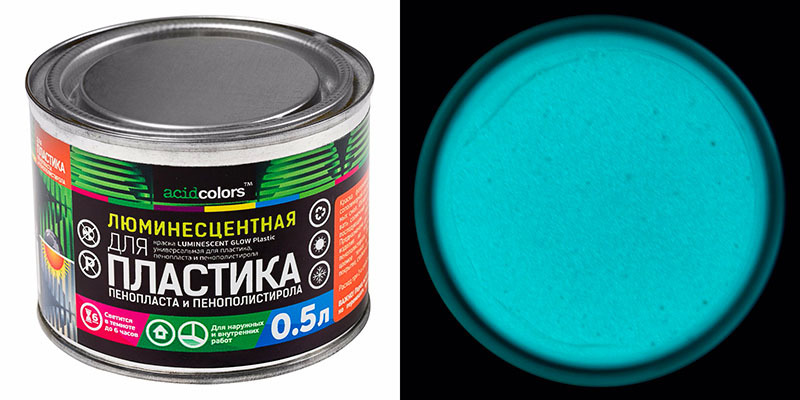
Waterproof acrylic enamel and its features
This composition is two-component and consists of the paint itself, which is the base, and a special chemical composition - a hardener. It is he who gives the coating strength and resistance to mechanical stress, as well as ultraviolet radiation. As a result of applying such enamel, the surface looks like after applying a high-quality varnished coating. Preliminary preparation when applying such a composition is not required if the surface is not heavily contaminated.
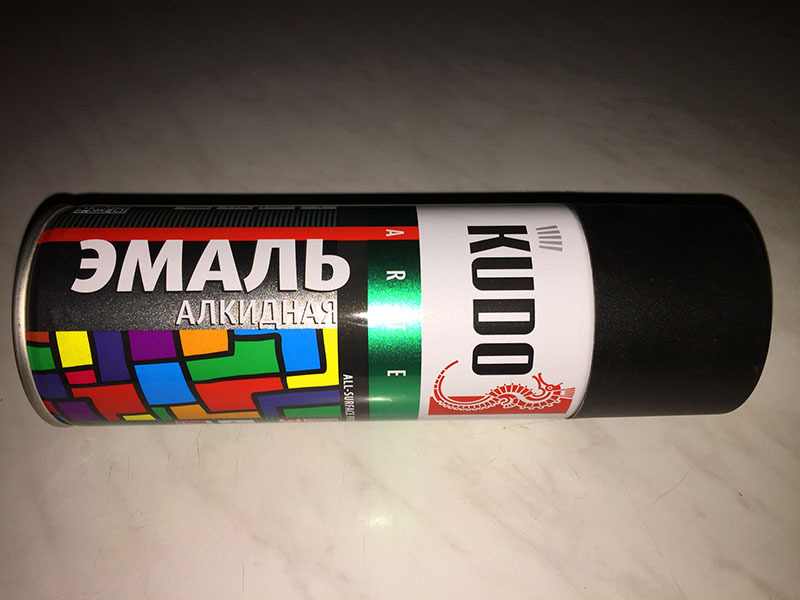
It will be optimal to use such compositions on large areas or where the surface will be constantly exposed to mechanical stress.
Polyurethane-acrylic dyes for PVC and their applications
The same water-based acrylic paints to which polyurethane is added. Such formulations are ideal for large areas requiring protection from moisture and other weather conditions. Polyurethane-acrylic paints are used for siding, sandwich panels, rigid PVC, metal-plastic doors or window frames.
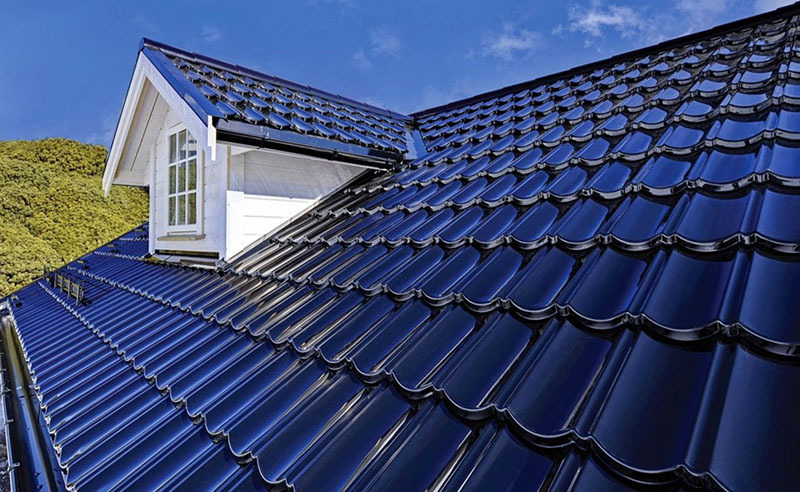
Such compositions are easily tinted. At the same time, when adding textural impurities, you can achieve the effect of wood or plaster on the painted surface.
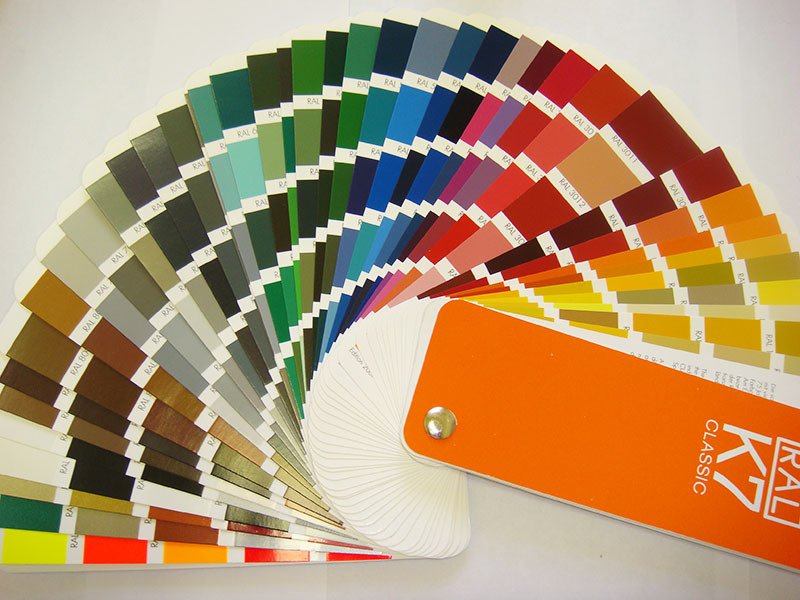
Features of matte soft-touch paint
The plastic coated with soft-touch paint is very pleasant to the touch. That is why such formulations are most often used for products such as flashlights, binoculars, hand tools, a computer mouse, and even children's toys. Soundproofing, light absorption - all this is soft-touch.
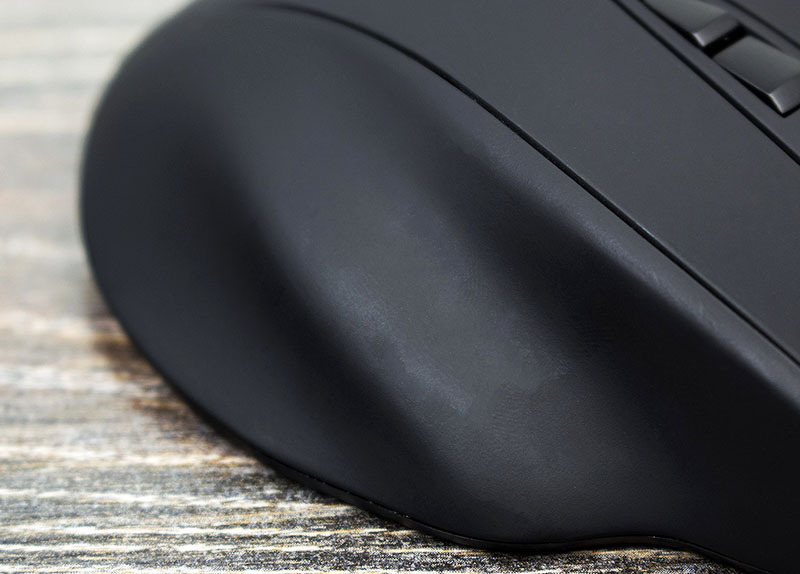
The most common color for this paint is black, but other shades can be found if necessary. Soft-touch is widely used in decorating cars, namely salons. Its undoubted advantage is that it does not drain on vertical surfaces. In this case, all sharp corners are visually smoothed out.
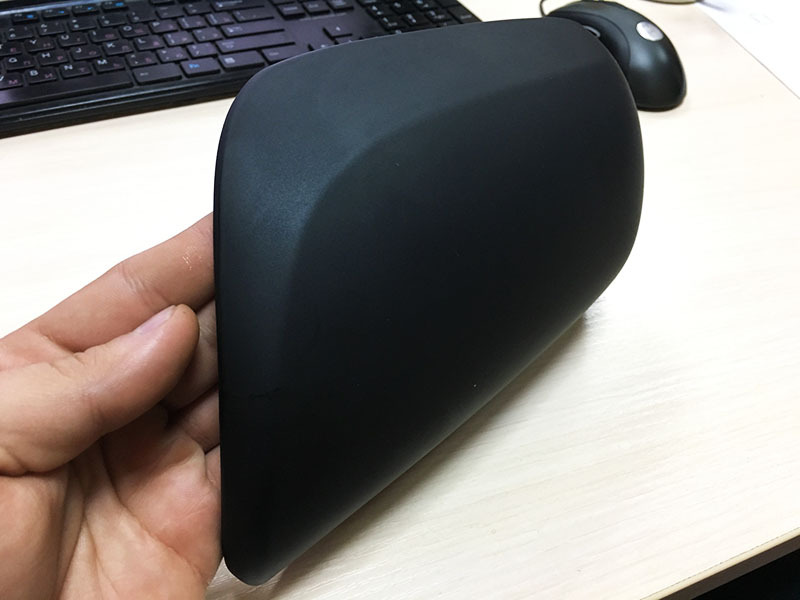
Aerosol universal compounds and paints for plastic
The most convenient paintwork materials, with which even a beginner can easily work. Two types of paints are produced in cylinders - enamel for PVC, which gives a glossy saturated color, and soft-touch, which gives a matte shade, pleasant to the touch.
It is easy to paint large surfaces with a spray can. In this case, paint consumption is significantly less than when working with a brush or roller. However, when working, do not forget about personal protective equipment - glasses, respirator, gloves.
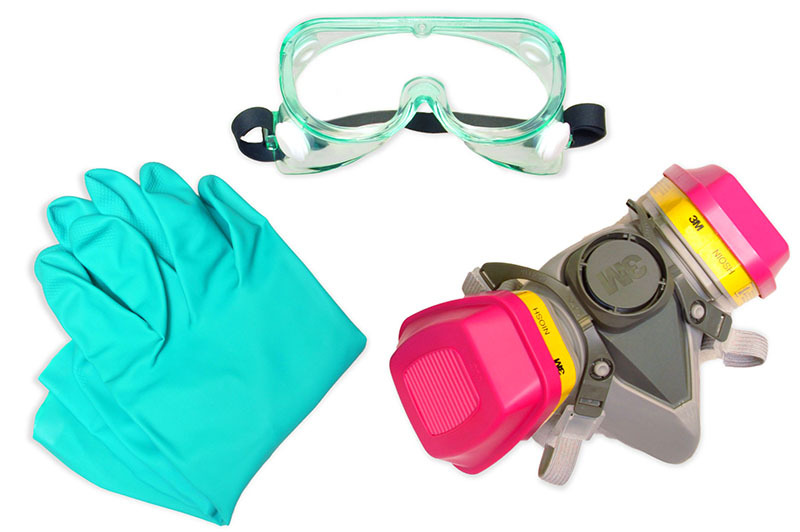
How to paint plastic parts: step by step instructions
It is not always possible to understand the production technology of a particular action, simply by reading the text information. The process is much easier to learn from examples. Therefore, today's step-by-step instructions will be presented to the dear reader based on a photo of the performed actions with a description of the process. This format will make it easier to understand.
First, let's figure out what tools and materials will be needed for work. Painting will be done with aerosol paint, and a primer for plastic (in a bottle) will also be used. Additionally, sandpaper and solvent should be prepared.
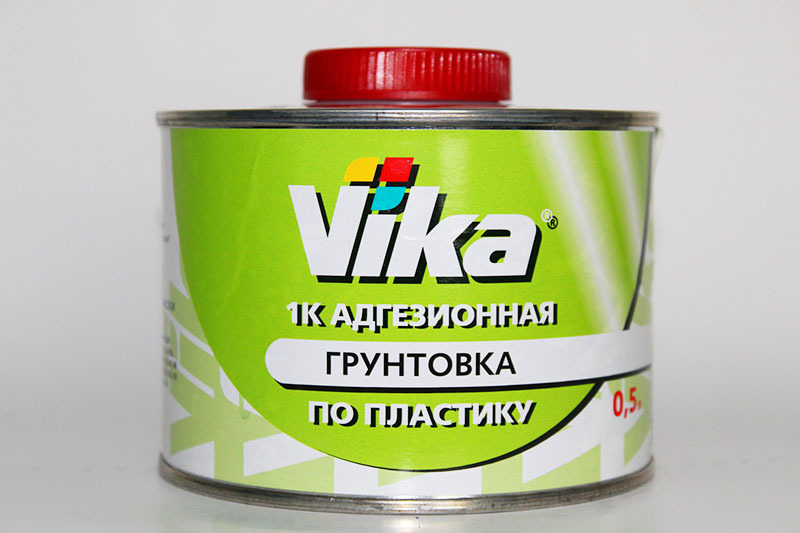
Algorithm of actions when applying paint to plastic
As an example, today we took inspection hatches, which are always sold only in white. But the tiles in the bathroom may have different shades. In this case, the boring white color will be very disadvantageous to stand out. So, you need to work with him.
| Illustrations | Action being performed |
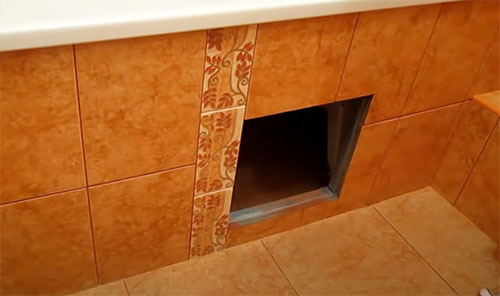 | With such a color of the tile in the bathroom, I absolutely do not want to close the inspection hole with a white hatch. This means that the plastic will have to be painted. |
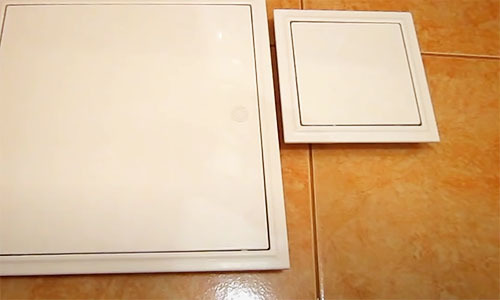 | These are the hatches that have been prepared. First, they must be thoroughly washed with a sponge with any dish detergent or even laundry soap. This will remove greasy film and other contaminants from the surface. |
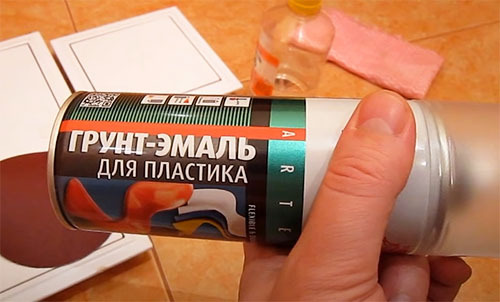 | Immediately you need to prepare the soil. It is better if it is just a primer for plastic, although the usual acrylic composition for these purposes is also not bad. |
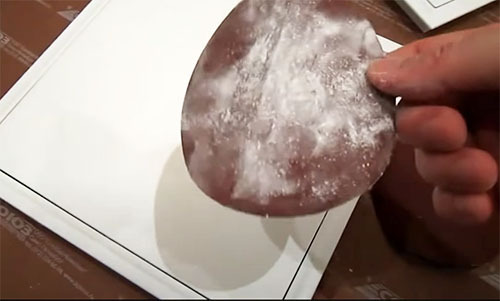 | The first step is to remove the gloss from the surface. To do this, you can use ordinary sandpaper (grit does not matter). If the gloss is not removed, the adhesion will be poor. |
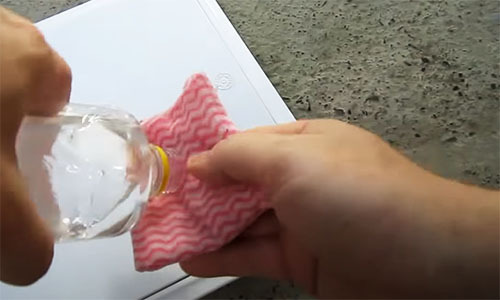 | Next, the surface is wiped with a soft, damp cloth to remove dust. But the main thing is high-quality degreasing. It can be produced using a solvent or acetone. |
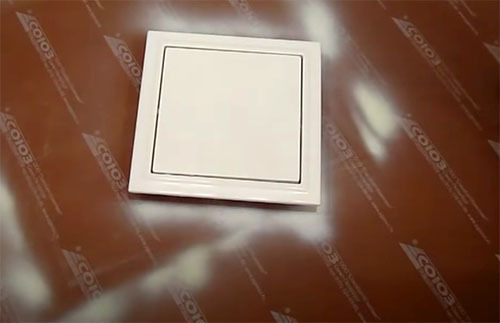 | When everything is ready, you can start painting. First, a layer of primer is applied. The primer for the plastic lays down evenly, which means that the part does not need to be coated again. |
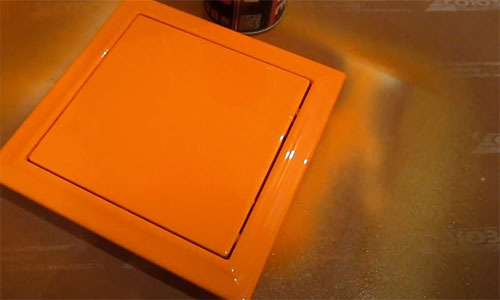 | When the primer is completely dry, paint of the selected color can be applied. Here, the result is not always perfect the first time. Often you have to wait for the first layer to dry completely and apply the second. |
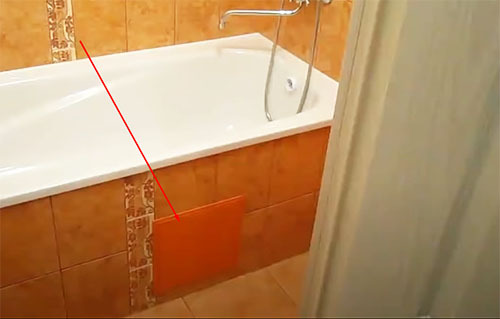 | Now it’s a completely different matter. Of course, the color does not quite match the tile, but it is much better than the boring white hatch. |
In such a simple way, you can completely modify the plastic part. But painting with an aerosol can is not to everyone's liking, which means that it is worth talking about working with a brush.
How does working with a brush differ from painting with a spray can
In general, there are no big differences here. Preparation, degreasing, priming, and then paint application. Therefore, if it is more convenient for the master to work with a brush or roller, then this will not be a problem. If additional protection of the painted surface is required after it has dried, an additional layer of acrylic colorless varnish can be applied.
There are just a few tips to follow when working with a brush:
- The paint is applied in a thin layer, while the brush is constantly pressed against the surface.
- Do not completely dip the brush into the paint.
- It is necessary to monitor the angle of inclination of the brush - it should always be the same.
- Paintwork material is applied in a wide strip, after which it is shaded. This is done so that all scratches left after removing the gloss are filled and the surface becomes even.
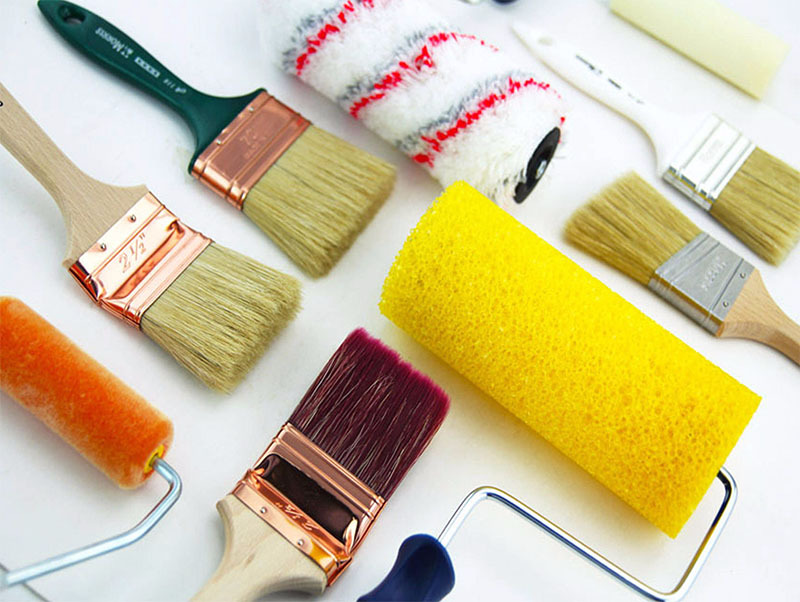
Safety precautions and personal protective equipment
The main thing that needs to be protected when working with paintwork materials (especially aerosol paints) is the organs of vision, mucous membranes of the respiratory tract, hands. For this, protective goggles, respirators and gloves are used. This rule is regulated by GOST 28196-89, GOST 12.4.103.
All work should be carried out in a well-ventilated area or outdoors. Work is not allowed near incandescent objects or open flames. Do not neglect the safety rules. It must be remembered that there are human lives behind each of them.
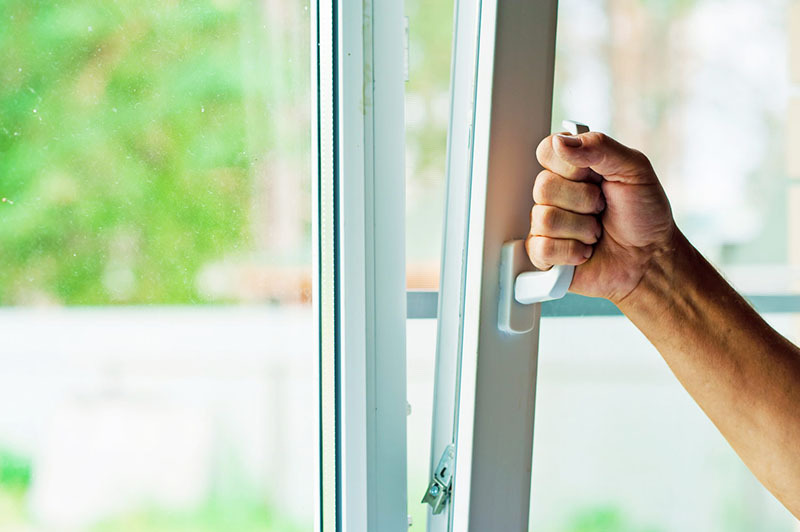
Aerosol cans also require a certain attitude. Inside they paint under pressure. Therefore, the cylinders must not be left in the sun. Also, in no case should they be disassembled or punctured even after they have been used. If paint remains in the cylinder after the end of the work, the spray should be blown out. To do this, he turns upside down. Now, if you press the sprayer, the remaining paint will be removed from it. If you hear a hiss and no paint is sprayed, then the can is ready for long-term storage.
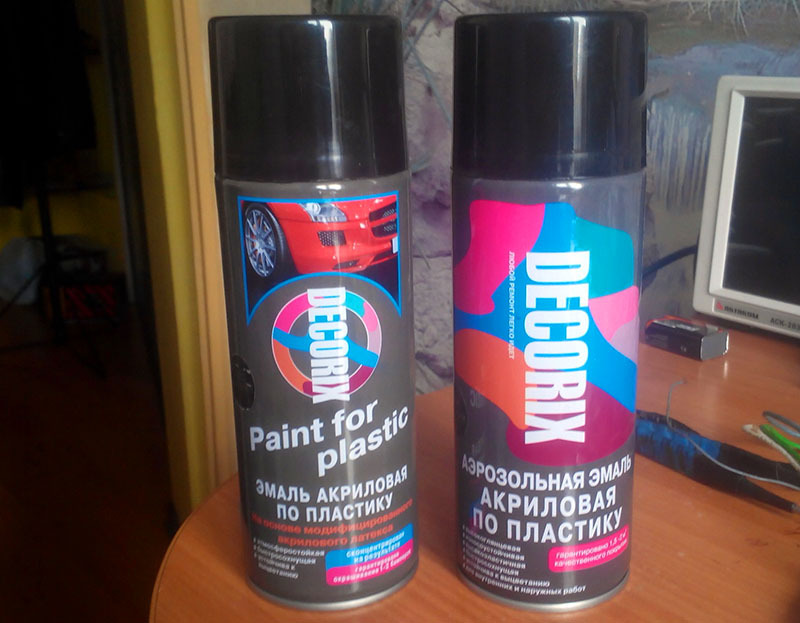
How to properly dry painted surfaces
Drying of painted parts should be done in a well ventilated area. In this case, the temperature should not fall below +20 ° С. Dust is very harmful to a dry surface. If it sticks to the paint, the surface becomes rough. In this case, we are no longer talking about gloss.

High-temperature drying in the chamber is considered the most optimal. At the same time, the drying time is significantly reduced, and the paint becomes more durable. However, such equipment can only be afforded by body shops and some workshops.
Important! The application of the next coat (paint or varnish) before the previous one is completely dry is not allowed. On average, the drying time of spray paint is 35-40 minutes, but do not rush. Better to wait at least 2 hours. After all, the first place here is not speed, but the result.
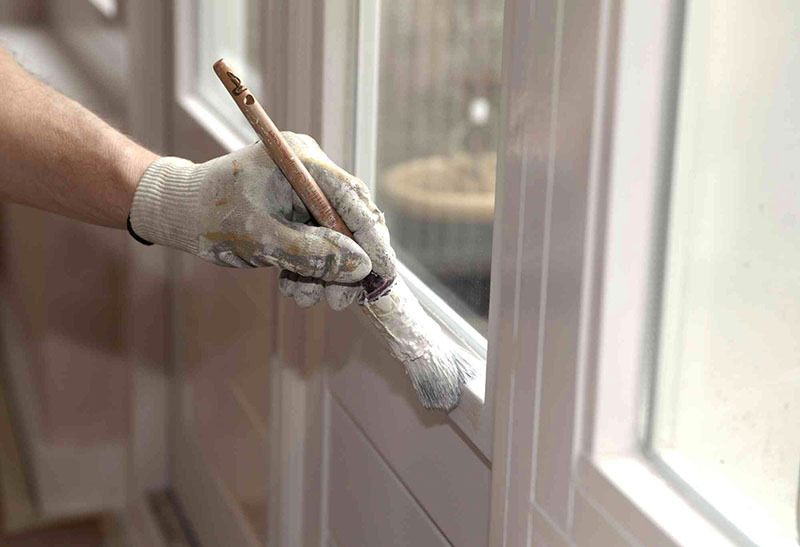
Finally
Many people believe that plastic should not be painted at all, but if everything is done correctly, the decorative layer on the same window frames will last at least 5-7 years. Considering that painting is significantly cheaper and easier to replace, the benefits are clear. The main thing is to do everything according to your mind. And the question of how to paint (with an aerosol can or a brush) will be decided by the home master himself.
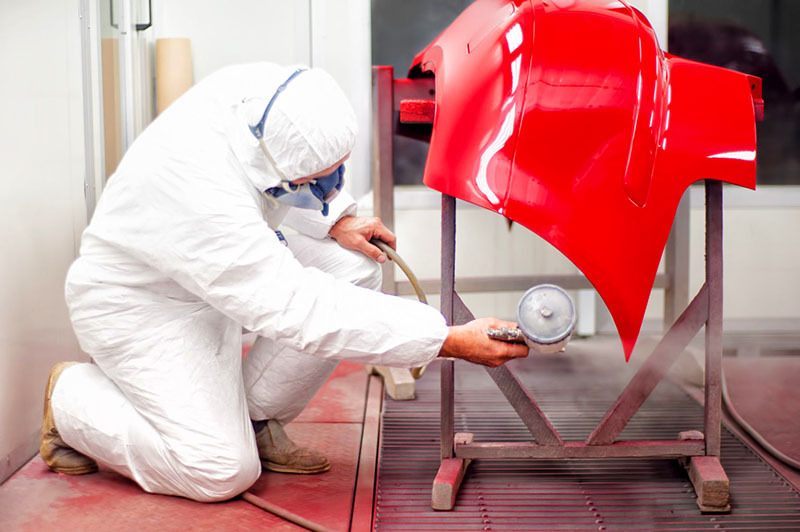
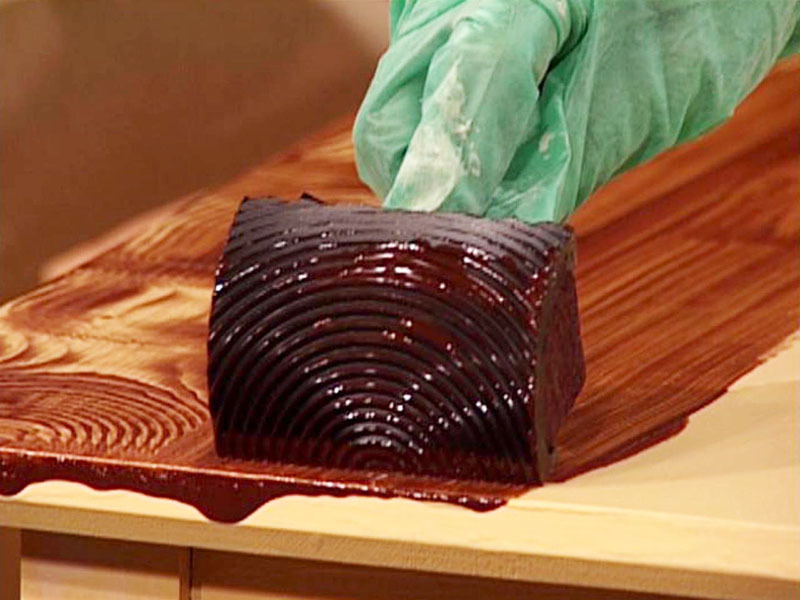
We hope that the information presented today was not only interesting, but also useful to our dear reader. If you have any questions about the topic, ask them in the discussions below. HouseChief editors will not leave any of them unanswered. If you liked the article, do not forget to rate it. Every opinion matters to us. And finally, according to the already established good tradition, we bring to your attention a short, but very informative video, which will more fully reveal today's topic. Take care of yourself, loved ones and be healthy!


